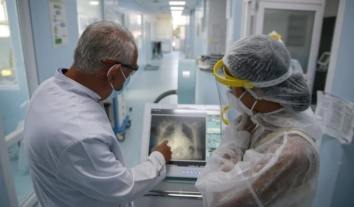Tortures cannot help get reliable information – research
The use of tortures and degrading treatment does not help get credible and reliable information as the negative impact on the psychics of a victim leads to memory impairment. As a result, people give false evidence or deliberately defame themselves to end suffering as quickly as possible.
This was told by practicing psychologists specializing in studies of influence of tortures on the human brain at the workshop chaired by UN Special Rapporteur on Torture Juan Mendez, which took place in Washington on July 7-8, the Expert Centre for Human Rights posted on Facebook.
According to the psychologists, tortures adversely affect the personal integrity of both a victim and a law enforcement officer who uses them.
“I was present for the first time at an event of such a level, where the detectives, the highest level professionals who have 25-30 years of experience in the field of investigation of crimes, unanimously say that torture is not effective means for the investigation,” Head of the Expert Centre for Human Rights Yuri Belousov said.
The detectives drew attention to the fact that information obtained during torture cannot be used in court as it is collected unlawfully. An effective alternative to torture is the so-called “investigative interviewing”, i.e. an approach to collection of information, which effectiveness was proved with 30 years of experience in its practical application by the British police and with the results of numerous studies.
The purpose of interviewing, in contrast to interrogation, lies not in getting confessions from a suspect, but in collecting accurate and reliable information about the circumstances of the incident. At the same time, the developed countries are trying to avoid using the term of “interrogation”, which has a negative connotation, preferring the term “interviewing” as the process of communication between people.
According to the Head of the Expert Centre for Human Rights, the experience of foreign colleagues should be used in training of domestic law enforcement officers. However, not only police officers but also prosecutors, who should oversee the entire investigation process, and judges, who are to establish all the circumstances of the case already during the trial, should undergo such training.










